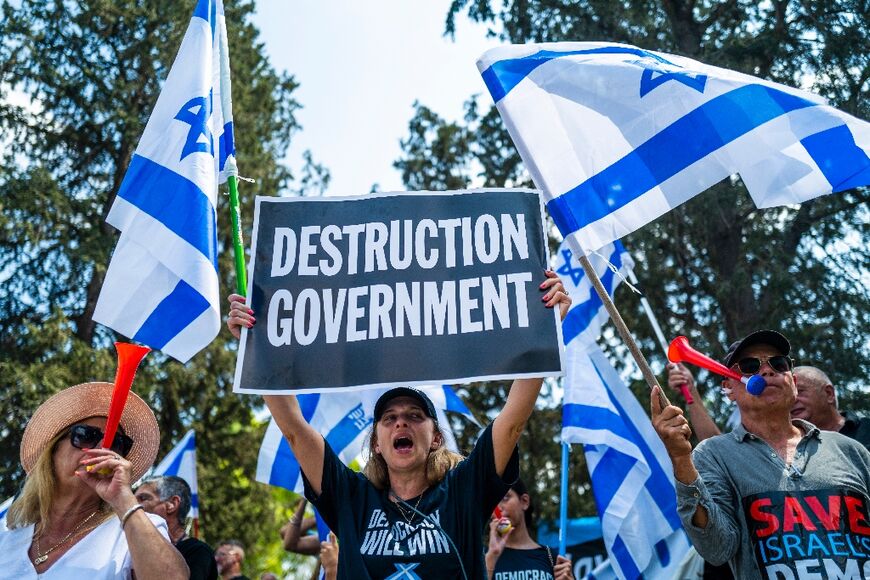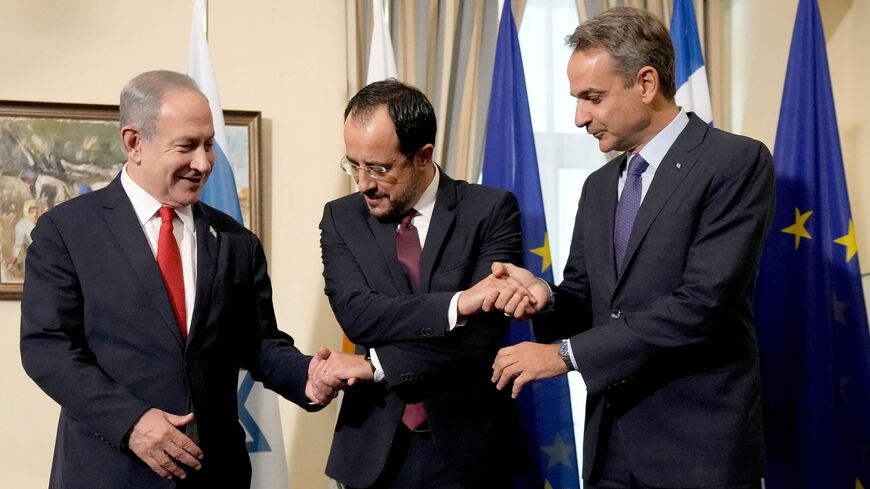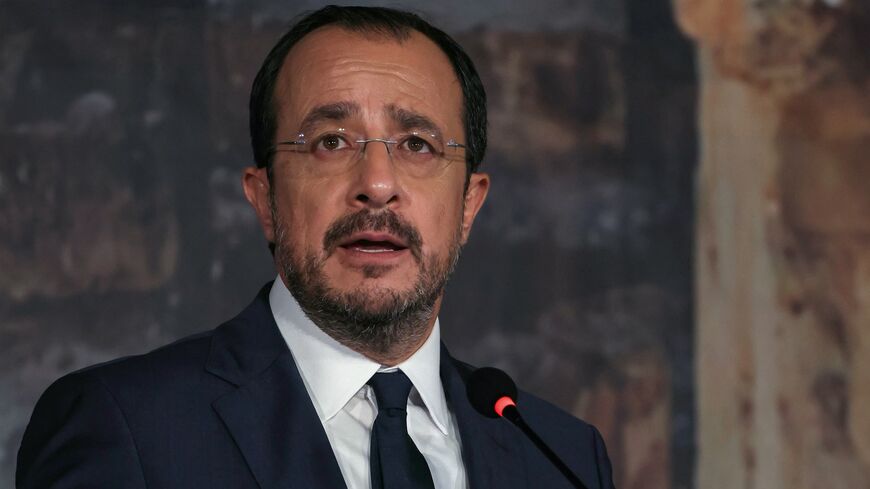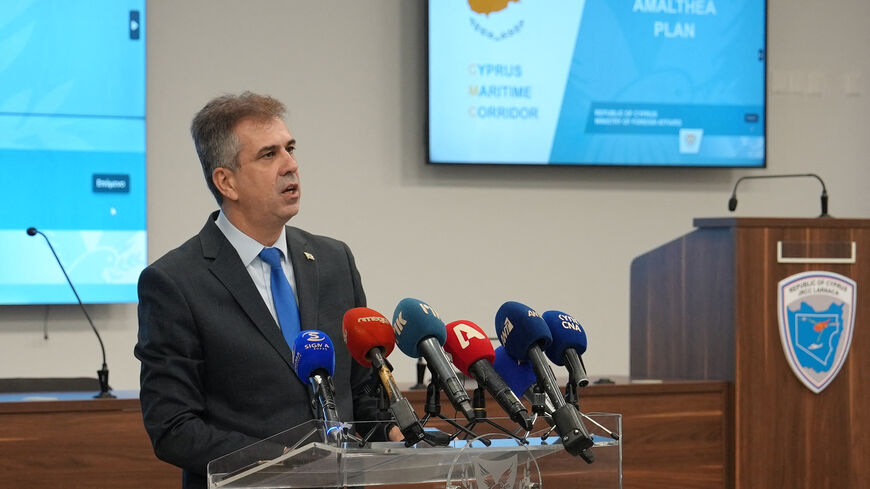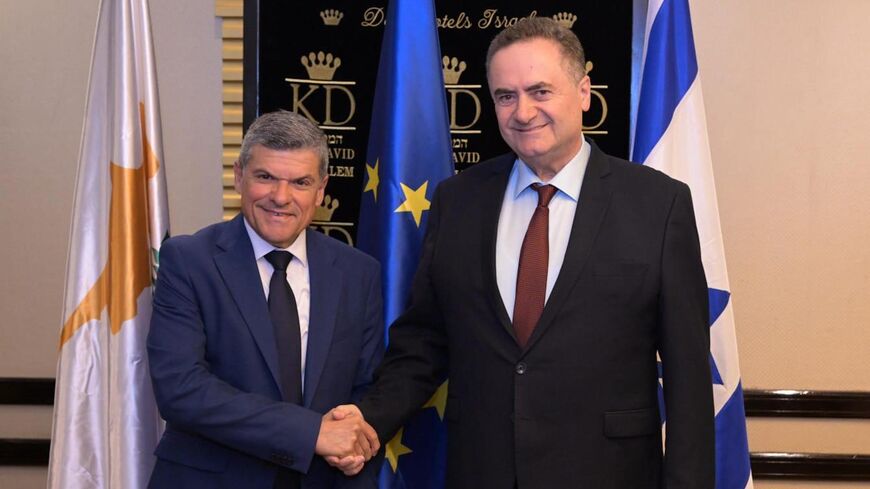Cyprus, Israel, Greece to focus on energy cooperation
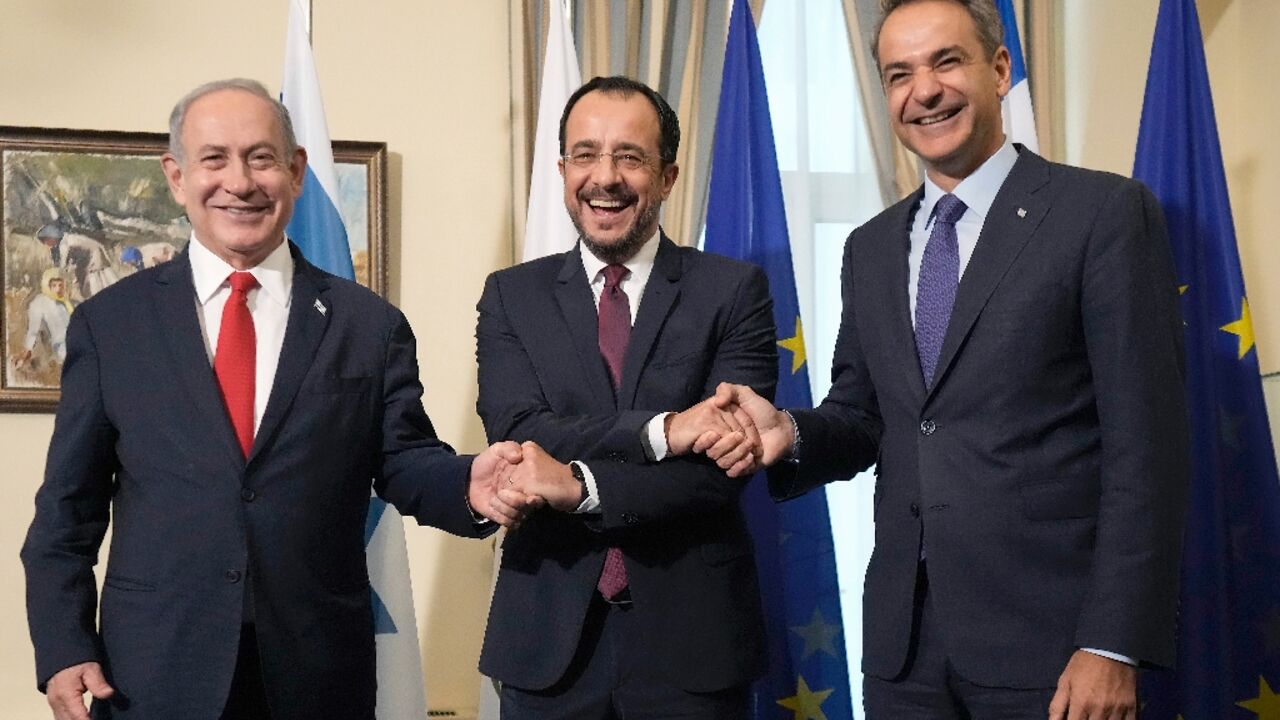
Cyprus, Greece and Israel agreed at a summit in Nicosia on Monday to deepen their regional energy cooperation to focus on exports to Europe, especially natural gas and renewables.
"We agreed that the energy sector, and in particular, natural gas, electricity and renewable energy, is a solid foundation for cooperation in the region," said a joint statement after the meeting.
It was issued after Cypriot President Nikos Christodoulides, Israeli Prime Minister Benjamin Netanyahu and Greek Prime Minister Kyriakos Mitsotakis met for the countries' Ninth Trilateral Summit.
The trio have based their eight-year regional partnership on energy wealth in the eastern Mediterranean and security of supply for Europe.
Israel is already exploiting offshore gas reserves, and Cyprus has so far untapped energy riches. Both countries are seeking ways to join forces to export natural gas to the European mainland.
The leaders said they wanted to promote "energy synergies" such as an electricity interconnector between the three countries and a possible natural gas pipeline, the joint statement said.
"We reaffirmed the common interest to advance prospects for a reliable energy corridor from the Eastern Mediterranean basin to Europe," the statement added.
Netanyahu said Israel and Cyprus were working on exporting his country's gas reserves to Europe via the island.
Nicosia is considering building a pipeline to transfer offshore natural gas from Israel to Cyprus, where it would fuel electricity generators or be liquefied for onwards export by ship.
"We are looking at the possibility of cooperating on this, and those decisions will be made, I think, in the next three to six months, probably closer to three months," Netanyahu said.
Cyprus, Greece and Israel are also involved in building the world's longest and deepest 2,000-megawatt subsea electricity cable called the EuroAsia Interconnector, linking the three countries' grids with mainland Europe.
- 'Circle of peace' -
Mitsotakis said the energy issue is of "common interest".
"So, we have a great interest in seeing how the Israeli and Cypriot gas will be exported to the EU and to respect solutions that have the blessing of the two governments, but they will also be tested by the markets," the Greek premier said.
Christodoulides said the three also discussed cooperation with India, and discussed ways to tap into "the momentum achieved by the groundbreaking Abraham Accords".
"The strengthening and widening of the circle of peace between Israel and the Arab world, unthinkable only a few years ago, holds the promise for a more secure and prosperous region, and we are committed to encourage and support this process," the joint statement also said.
The United Arab Emirates, Bahrain and Morocco agreed to normalise ties with Israel under the US-brokered 2020 Abraham Accords. Before then, Israel had official ties only with Egypt and Jordan.
Monday's summit took place amid growing speculation about an impending normalisation deal between Israel and Saudi Arabia, which is not a signatory to the Abraham Accords.
As the three leaders met in the presidential palace in the Cypriot capital, a protest took place nearby against Netanyahu's plans to reform Israel's judicial system.
Since his right-wing coalition government unveiled the reform package in January, tens of thousands of Israelis have joined weekly demonstrations in Tel Aviv.
The next trilateral meeting of the three countries' leaders will be held in Israel next year, Monday's joint statement said.
strs-srm/jsa


